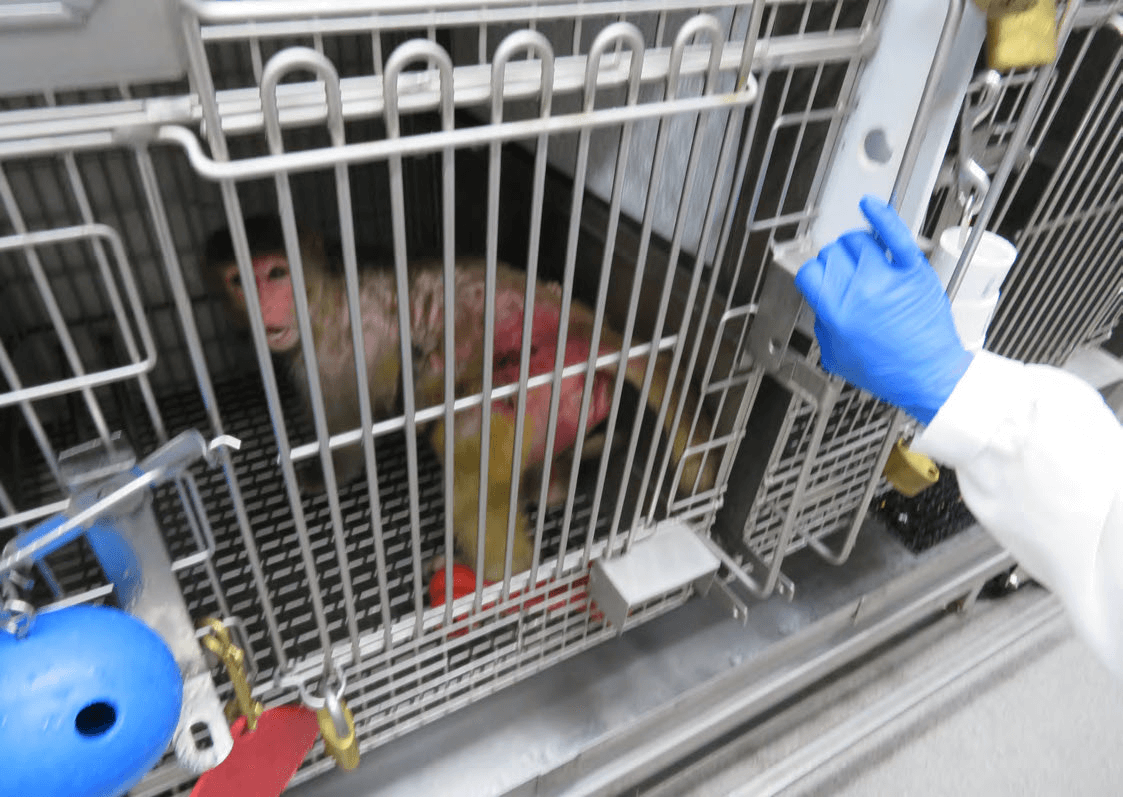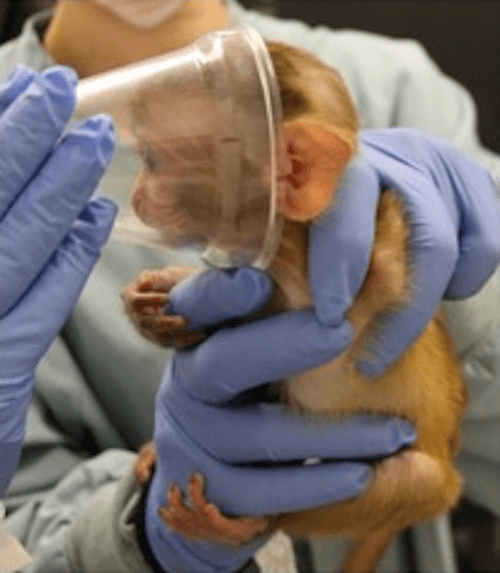Emory National Primate Research Center
Monkeys imprisoned at the Emory National Primate Research Center have died in horrific ways, including monkeys who were left to die in cage power washers.
Experimental Neurology | ScienceDirect
After Yerkes experimenters injected this monkey with a toxin, he was unable to move his feet despite trying. He struggled with a phenomenon called “freezing of gait.” Experimenters across the country have continued to force monkeys to endure this kind of trauma for decades, even though their tests have not led to cures for humans.

The Emory National Primate Research Center (Emory), formerly known as the Yerkes National Primate Research Center, is one of seven so-called “flagship primate centers” established and funded by the National Institutes of Health (NIH) and one of the largest primate laboratories in the world. Located in Atlanta, it’s affiliated with Emory University, which used 1,143 nonhuman primates in experiments in 2022. An additional 2,798 nonhuman primates were imprisoned at the facility for other purposes, including breeding. In fiscal year 2022, Emory University received over $800 million from NIH, including more than $11 million for basic operations of the primate center.


Experimenters at Emory use monkeys in addiction studies and in experiments designed to cause extreme psychological distress. Emory’s Mar Sanchez subjects infant monkeys to maternal abuse and neglect and studies the impact of this early-life stress on their “enhanced vulnerability to the reinforcing effects of cocaine.” Another Emory experimenter, Stuart Zola, has cut lesions in monkeys’ brains and tied the animals to restraint chairs—using severe stress to induce and then measure cognitive deficits. He has also induced strokes in monkeys by obstructing a major artery leading to the brain.
Journal of Neuroscience Methods | ScienceDirect
This video shows a cage system at Yerkes used to try to quantify a monkey’s movements. These highly intelligent and social animals were left alone in barren cages. Some monkeys in the experiment were injected with a toxin in an attempt to mimic symptoms that humans with Parkinson’s disease suffer from—even though such experiments have failed to produce treatments or cures for humans.
Federal inspection reports document that the suffering of primates at Emory has been exacerbated by inexcusable negligence. Monkeys have died from starvation, strangulation, suffocation, heatstroke, asphyxiation from their own vomit, self-mutilation, being scalded to death after a cage was placed in an automated washer with the animal remaining inside, trauma and shock, and sepsis. Recent inspection reports reveal that monkeys suffered from debilitating pain and, in one case, died after gauze had been left in an animal’s abdomen during experimental surgery. A 7-month-old female monkey died after having been left behind and forgotten inside an unattended cage. And a juvenile monkey had to be euthanized after a rubber band that had been tied to his wrist became embedded in his body after staff neglected to remove it. Staff had used rubber bands to tie him down while he was being tattooed with an identification number.
Between 1997 and 2005, the U.S. Department of Agriculture (USDA) fined Emory $17,375 for a litany of serious animal-welfare violations. In 2007, it was ordered to pay $15,000 by an administrative law judge for “willful violations” of the federal Animal Welfare Act, including an incident in which a squirrel monkey was sent through a boiling-hot industrial cage washer while she was still locked inside and another incident in which personnel were restraining monkeys with duct tape. Sadly, these fines are unlikely to be a meaningful deterrent from further violations. Given Emory’s $80 million annual award from the federal government to hurt and kill monkeys in experiments, it will recover the money that it paid for abusing animals in merely four hours of operation.
Emory is currently under investigation by the USDA for additional violations.


